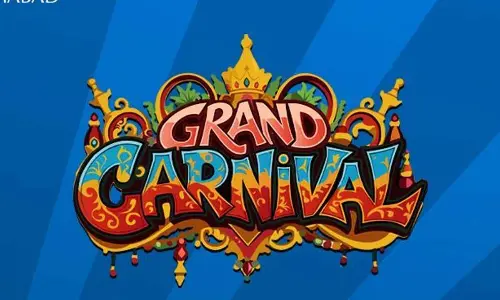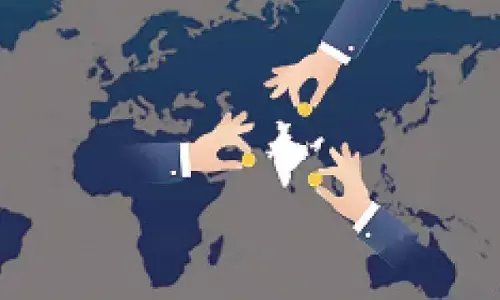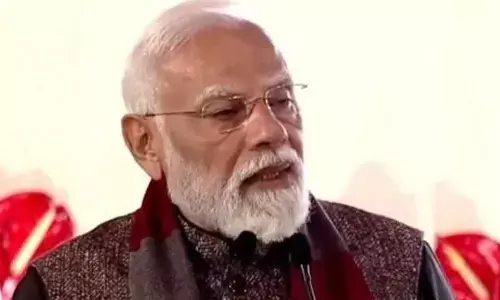What to share and what not to…

Social networks have opened up mind-boggling possibilities for sharing opinions to emotions. There are innumerable anecdotal evidence to reveal how good and horrendous sides of this maverick sharing, some of which come cloaked in mystery and the unknown.
Social networks have opened up mind-boggling possibilities for sharing opinions to emotions. There are innumerable anecdotal evidence to reveal how good and horrendous sides of this maverick sharing, some of which come cloaked in mystery and the unknown.
A random look into instances of cyber crime shows the rampant misuse and how reckless sharing by gullible men and women took them to the brink of a personal disaster leading them straight to a point of no return.
A young girl from France chose to live broadcast her death on periscope; a live broadcast is available on an app of twitter. Reactions were spontaneous and as agonising ‘that’s better’ and ‘we are waiting’.
Such brutally inconsiderate reactions are inconceivable in a sane society. It’s shocking to notice that the live stream received continuous ‘likes’. Where is the society heading?
Such extreme urge to share indicates disturbing human behaviour. An increasing number of youth is falling prey to such bizarre forms of sharing, which prompted me to attempt making a summary of what to share and what not to share.
Its’ true, sharing helps you to get relief from the heaviness of an emotion. As Mother Teresa rightly observed, “If we have no peace, it is because we have forgotten that we belong to each other.”
Sharing happy moments enhance the feeling of happiness. Given that human beings are social animals, sharing is the inherent characteristic. As the opportunities to stay connected get revolutionised, sharing has assumed epidemic proportions.
There is an increasing trend of sharing sex and violence apart from the most preposterously sensational things. My analysis of the Brexit and its fall-out was hardly shared on social media. But, my comment on a frivolous political controversy hit a hitherto new high.
Films and the related stuff are shared million times more than the news of great scientific discoveries that have far-reaching consequences. American novelist Elie Wiesel said, “Friendship marks a life even more deeply than love. Love risks degenerating into obsession, friendship is never anything but sharing.”
In this backdrop, it is pertinent to remember that sharing right things on a friend’s account is the hallmark of truthful sharing. People share happy moments with jokes taking a lion’s share of it. Fine, as the British novelist Charlotte Brontë said, “Happiness quite unshared can scarcely be called happiness; it has no taste.”
But share something which makes the recipient happy rather than what makes you happy. That’s the character of real friendship. Sharing is an innate human nature. In an age of networking and team functioning, sharing as a personality attribute has immense value.
Even research has shown that businesses are more successful if conflicting views are shared and diversity is respected. Robin Ely of Harvard Business School and David Thomas of Georgetown University’s McDonough School of Business found in a qualitative study of diverse teams that openly discussing the unique qualities of different team members and integrating diverse perspectives allowed individuals to feel valued, important and respected.
The team members were able to apply their unique knowledge, perspectives, and identities to the task at hand, which enhanced their cross-cultural learning and performance. Share your thoughts to explore the world around you, to understand the world in its diverse perspective in order to widen one’s horizons.
It is a more meaningful exercise than squandering away your precious time and energy in the wilderness. The culture of sharing should improve the cumulative or aggregate performance of people connected rather than infect unproductive behaviour and degenerative personality traits.
Build open social networks around you that can make you aware of your own strengths and overcome your deficiencies as prompted by the immediate networking buddies who mean well but be aware of networks that either exploit or disparage you.
Mind yourself of the dangers of sharing with such social contacts. Making people aware of their own strengths results in better communication among team members and thereby result in qualitative productivity, states Francesca Gino in an article, ‘Teams Who Share Personal Stories Are More Effective’, published in Harvard Business Review (April 25, 2016).
As rightly observed by Christopher Myers in an article entitled ‘Is Your Company Encouraging Employees to Share What They Know?’, Harvard Business Review (November 6, 2015), many of the things we need to know to be successful – to innovate, collaborate, solve problems, and identify new opportunities – aren’t learned simply through schooling, training, or personal experience.
Especially for today’s knowledge-based work, much of what we need to know we learn from others’ experiences, through what’s called vicarious learning. Effective knowledge sharing maximises the performance of individuals within a group.
So, share what you have newly learnt, what you have freshly encountered. Mind you, such behaviour of sharing is critical even for innovation. Informal or intuitive learning accounts for a significant chunk of what you and I learn.
Thus, sharing is not just for entertainment, it can be an effective instrument of education and enterprise development. Do not discourage your children actively sharing on social media platforms or otherwise. Such an attitude enhances the employability as companies are increasingly realising the productivity costs and opportunities lost due to organisational behaviour that does not encourage sharing. But, the moot point is what is being shared.
“Share your knowledge. It is a way to achieve immortality”, exalts Buddhist scriptures. An experience that is not shared is like a book lying idle on the shelf. Like money, experiences, emotions and learning should be shared always to bring about vitality to them. Experience and learning enriches you. But when shared, it gets enriched manifold.




















